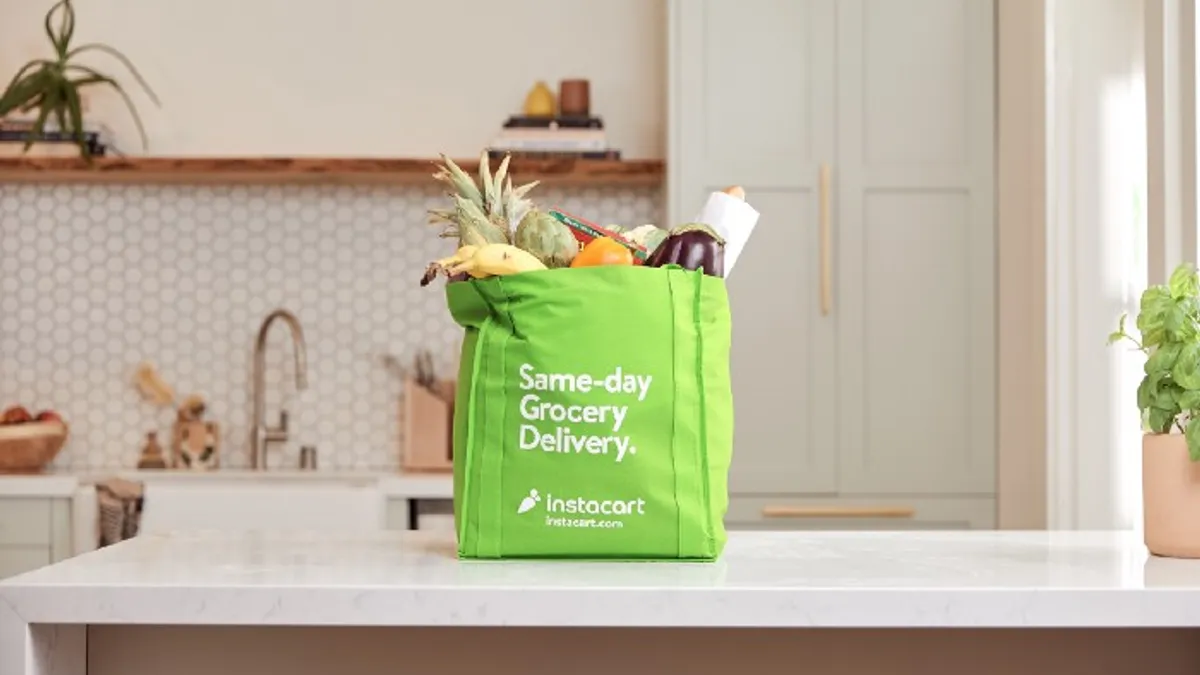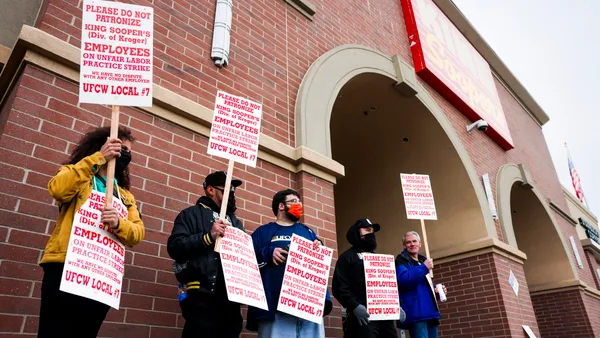Dive Brief:
- Instacart has raised another $200 million in a financing round led by D1 Capital Partners and Valiant Peregrine Fund, according to a company press release. The funding, which follows a round of $225 million raised in June, brings its total valuation to $17.7 billion.
- The company said the investment will help it introduce new features to improve customer experience; continue to build Instacart Enterprise, which offers white-label platforms for retailers; and invest more in Instacart Ads, which helps CPG companies connect with shoppers.
- Following the new round, the Financial Times reported that Instacart is engaged in talks with investment banks concerning an initial public offering.
Dive Insight:
The influx of cash in June helped Instacart scale its business to meet unprecedented demand for grocery delivery during the pandemic. With the newest funding, Instacart is out of survival mode and ready to shift its focus toward further expanding its business in grocery fulfillment, digital ads and beyond.
Instacart began the year with a valuation of about $7.9 billion which nearly doubled over the summer and now stands at $17.7 billion. The company added more than 150 retail partners this year, including non-grocery outlets like Sephora and 7-Eleven, and now fulfills orders from upwards of 500 retailers and 40,000 stores.
"COVID-19 has forever changed the way people shop for their groceries and goods and, as a result, Instacart has gone from a convenience to a lifeline for millions of people," the company stated in a blog post.
The steady trajectory, paired with Instacart becoming profitable for the first time this year, gives the company good reason to eye a public offering. According to the Financial Times, Instacart is currently seeking advice on the process. A much-anticipated IPO could come as early as the first half of 2021 and be one of the largest for the U.S. next year.
With its focus on technology and contract labor, Instacart was able to quickly adjust to meet the 500% surge in online grocery demand it saw earlier this year. In a matter of weeks, it tripled its gig workforce. It has also released several new features and functions, like contactless delivery, aimed at boosting safety for its customers and its contract shoppers.
"If I think about the things that we have proven to be strengths in hindsight, the biggest is the resilience of the model the scalability of our model and the scalability of our relationships with our partners," Nilam Ganenthiran, Instacart's president, said in a recent interview.
Instacart's partnerships with the likes of Sephora and Big Lots point to a focus for the company beyond grocery. But with Uber, DoorDash and other e-commerce firms moving into grocery delivery, Instacart will also have to play defense in its core business.
Jeff Wells contributed reporting to this story.













